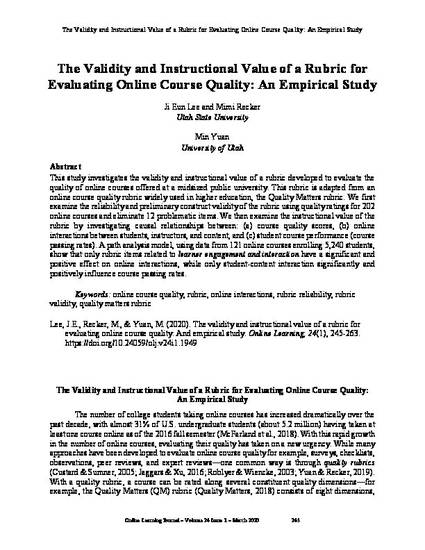
This study investigated the validity and instructional value of a rubric developed to evaluate the quality of online courses offered at a midsized public university. This rubric was adapted from an online course quality rubric widely used in higher education, the Quality Matters rubric. We first examined the reliability and preliminary construct validity of the rubric using quality ratings for 202 online courses and eliminated twelve problematic items. We then examined the instructional value of the rubric by investigating causal relationships between 1) course quality scores, 2) online interactions between students, instructors, and content, and 3) student course performance (course passing rates). A path analysis model, using data from 121 online courses enrolling 5,240 students, showed that only rubric items related to learner engagement and interaction had a significant and positive effect on online interactions, while only student-content interaction significantly and positively influenced course passing rates.
